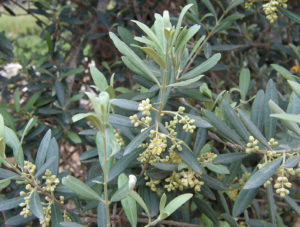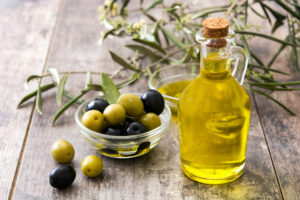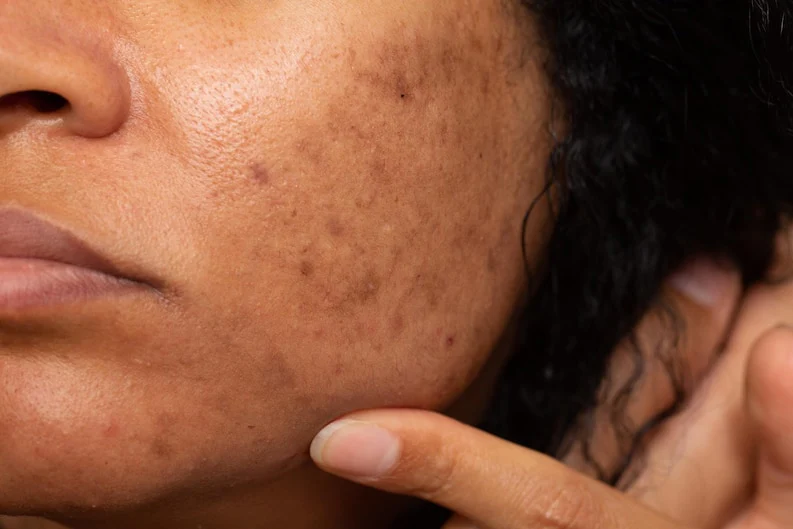Health Benefits of Taking Olive Oil
One of the enormous benefits of taking olive oil includes its effective laxative effects especially in cases of constipation. Olive is one of the fruits that quite rich in fiber. A Mediterranean pearl seen as a food for the digestive system.
The olive tree symbolizes Mediterranean civilization and its fruit has been part of human diet since inception. The olive is also considered as an important oil for both physical and spiritual benefits.
In this post, we’ll get to know more on the benefits of taking olive oil. The essence of consuming olive oil, why it is important to make it part of your diet. I personally use olive oil in place of body lotion and as at the time of making this post I just remembered I applied it on my hair and on my skin before starting this post.
In most Christian homes in Nigeria, the olive oil is readily available and few people use it for cooking purposes while majority use it for spiritual purposes. I’m only focusing on the health benefits.

In extracting olive oil, various people of the Mediterranean could extract the oil because they knew the techniques but the Arabs brought it to perfection. In the 8th century when the Moslems entered Europe, the methods of olive raising and extraction of the oil became improved.
The Spaniards took the olive to the regions of the Americas. Other names are:
French: Olive
German: Olive
Spanish: Aceituna, oliva
The fruit of the olive tree known as olive (‘Plea europeae’ L) belongs to the botanical family Oleaceae. At the beginning of fall, the green olives are harvested while the black olives are harvested in the beginning of December, at this time they are ripe.
The Olive originated from the between Iran, Turkey and Egypt.
Let’s look at the composition of olive oil or olive as the fruit. This will help us understand what this fruit is capable of providing us in terms of nutritional values.
Olive Composition
The following is what we can get from per 100 grams of raw edible portion.
Energy = 115 kcal = 480 kj
Carbohydrates = 3.06 g
Protein = 0.840 g
Fiber = 3.20 g
Vitamin A = 40.0 μg RE
Vitamin B1 = 0.003 mg
Viitamin B2 = ___
Niacin = 0.037 mg NE
Vitamin B6 = 0.009 mg
Folate & Vitamin B12 = _____
Vitamin C = 0.900 mg
Vitamin E = 3.00 mg ∝-TE
Calcium = 88.0 mg
Phosphorus = 3.00 mg
Magnesium = 4.00 mg
Potassium = 8.0 mg
Iron = 3.30 mg
Zinc = 0.220 mg
Saturated Fat = 1.42 g
Total Fat = 10.7 g
Cholesterol = ____
Sodium = 872 mg
The following information is accordance with the information provided by Dr. George P. in his book “Encyclopedia of Foods and their healing power”
It is based on % daily value provided by 100 grams of olive fruit/oil
Percentage Composition
Fiber = 3.20%
Carbohydrates = 3.06%
Fat = 10.7%
Minerals = 2.23%
Protein = 0.840%
Water = 80.0%
Properties and Indications of Olive Oil
The olives are fruits that are oleaginous, quite rich in fats and as a matter of fact calories.
Olive oil is rich in protein content which is quite higher than other fruits. As it is, the proteins are of high biological value because they contain all the essential amino acids. In essence, this is why the benefits of taking olive oil is quite enormous.
A study conducted at Oils and Fats Institute in Sevilla Spain shows the high digestibility and the nutritional capacity of fats in the olive. Also, the olive skin is rich in vegetable pigments (anthocyanins).
The skin of the olive is also rich in other volatile substances which give olive the unique aroma. The pulp is rich in vegetable fiber and other fatty substances called triglycerides making up 30% of their weight.
The following are the fatty acids that form Olive’s triglycerides:
- Oleic acid is the most abundant (monounsaturated)
- Linoleic acid (polyunsaturated)
- Palmitic and stearic acids (saturated)
The presence of provitamin A, vitamins B and E proffer many benefits of taking olive oil. In minerals, calcium is the most abundant and other minerals such as potassium, iron and phosphorus. The elevated sodium content in olive comes as a result of the salt added during its soaking in brine.
Some Benefits of taking olive oil (indications)
The following are some of the important Olive’s indications
- Gallbladder Disorders
- Lack of appetite
- Constipation
Gallbladder disorders
One of the benefits of taking olive oil is that it acts as a cholagogue, which helps in facilitating emptying of the gallbladder. As it is, taking olive oil or consuming them are quite useful in cases of disorder that interferes with gallbladder drainage and indigestion caused by disturbances in the gallbladder drainage.
In cases of gallstones, they may be employed but carefully.
Lack of appetite
Olive as well as the oil help stimulate the digestive processes and the appetite. Eating three olives before meal helps to increase the flow of gastric juices and also promote digestion. As for the olives, since they are highly rich in fiber, they must be chewed properly to prevent indigestion.
In cases of constipation, the oil is highly recommended since they have effective laxative effects. This is because they are high in fiber.
Other benefits
Olive oil has anti-inflammatory properties

Disease such as cancer, metabolic syndrome, heart disease, type 2 diabetes, Alzheimer, arthritis and obesity are caused by chronic inflammations. One of the benefits of taking olive oil is that it can reduce inflammations and this one of its main health benefits.
The anti-inflammatory effects are done by the antioxidants. They are:
- Ibuprofen
- Olecanthal
- Anti-inflammatory drug
Olive oil helps in preventing strokes
Acording to healthline, blood flow disturbances to the brain results to stroke. This could be due to bleeding or blood clot. As it is, studies find that olive oil holds a minimal risk of stroke as it is the only monounsaturated fat regarding heart disease and strokes.
Preparation and Use
- Naturally, green and black olives are hard and bitter. To have them eaten, soak them and continue changing water daily until they lose their bitter taste. The process can be accelerated by pounding them or making tiny cuts on the olives skin.
- Treated: In order to fasten the process further, 10 – 20 grams of caustic soda should be added to the water. This way, 24 to 40 hours of soaking are sufficient. Wash the olives in clean water and change the water every 2 hours for about 4 times.

Once the bitter taste has been removed, put them in brine and also add aromatic herbs such as savory, thyme, oregano, laurel or rosemary. After two weeks, they are ready to be eaten.
- Olive paté: Use ripe black olives to prepare it by mashing them to a paste. It has a nice flavor.
Warning!
In the cases of hypertension, they should be avoided or be eaten occasionally. This is due to their high salt content which does not seem organic but as a result of soaking in brine.
Olive oil is highly rich in triglycerides level, therefore, people suffering from obesity should avoid olive fruits and its oil.

A graduate of Computer Science and Information Management Technology. Diploma – Caregiving, Certificates – Dementia and Diabetes Awareness and Management. A researcher, blogger, songwriter, singer and acoustic guitarist. Born in an environment where natural talents such as healing are imparted at our natural birth. This natural talents of healing is the result of our genetic inheritance and the training from family environment.























